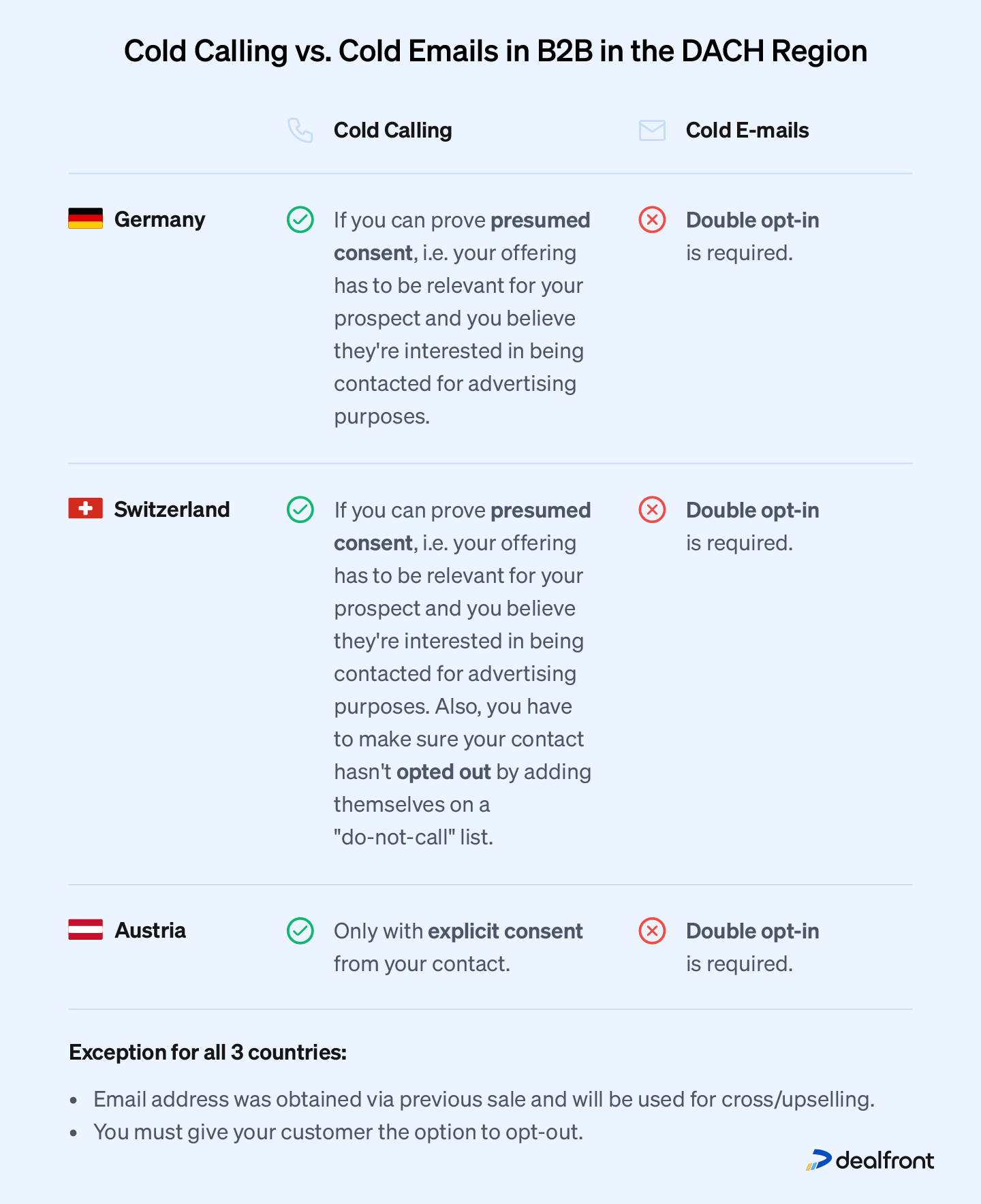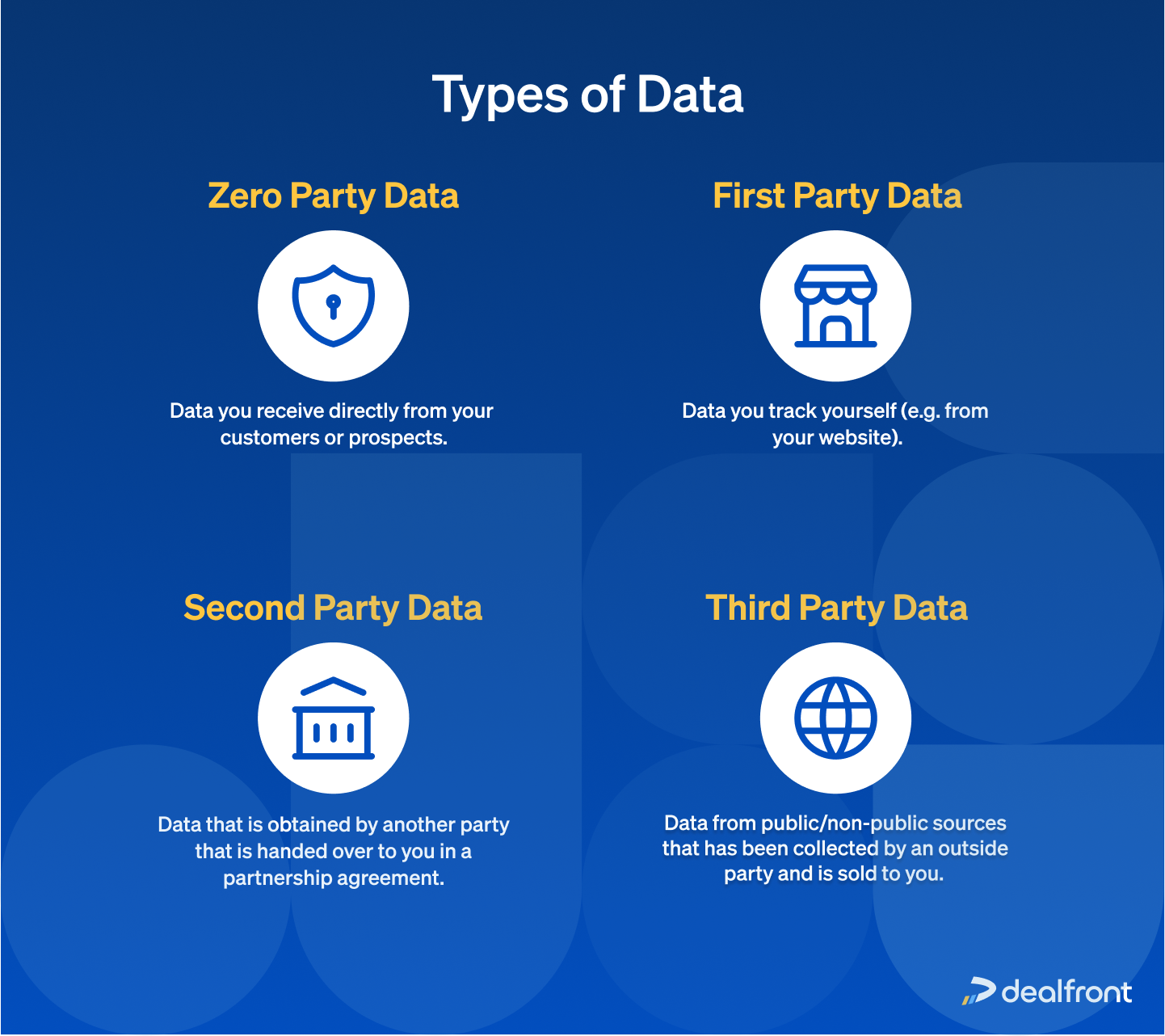The burning questions in B2B Sales (in Europe) for 2024 – and the answers
THE ARTICLES ON THESE PAGES ARE PRODUCED BY BUSINESS REPORTER, WHICH TAKES SOLE RESPONSIBILITY FOR THE CONTENTS

Dealfront is a Business Reporter client.
Let’s be honest. Sales doesn’t reinvent itself year to year. All the standard rules still apply today, whether it’s nailing your sales pitch, doing research before outreach or providing relevance to your target audience.
However, there will be some exciting (and possibly challenging) changes to the market in 2024. Two of the most relevant changes are that Google will be sunsetting third-party data and cookies, and Yahoo’s recent bulk email and spam email regulations.
To help you navigate these changes, we tackle your burning questions on B2B sales (in Europe) for 2024. We’ll take a look at recent market changes and compliance-related issues so you are prepared for whatever gets thrown at you.
Question #1: Can I still send bulk emails? (Google/Yahoo changes)
Recently, Google and Yahoo announced that there will be new regulations for sending bulk emails using their email services, preventing companies from sending thousands of emails every day.
Admittedly, bulk emails are handy for when you want to send out information, and your newest cold email template, quickly and easily. However, they also have their downsides. While you can grab your readers’ attention with a great subject line hook, dazzle them with eye-catching images, or try to cover some of their pain points, you can’t truly tailor more than 100 emails individually.
But personalising bulk emails is not the only problem, compliance is a huge consideration as well. If you’ve ever sold in the EU or the DACH markets (Germany, Austria and Switzerland), you know how bulk emails are regarded there: unfavourably. In the European Union, you need to have consent (in some EU member states a double opt-in is required) to send emails to companies and individuals you’ve never contacted before.
The short answer to this question is no. You can’t and shouldn’t send bulk emails if you’re selling to DACH or within the EU. Try other effective B2B sales methods such as cold calling, B2B advertising on search engines or social media, or go big with organic marketing efforts such as SEO.

Question #2: Can I be successful without cookies? (Intent data)
Yes, you can! Don’t stick your head in the sand just because Google wants to sunset third-party cookies for good. Sure, it’s going to be a challenging time for those who relied heavily on that type of data. However, they aren’t the only source of truth in B2B marketing and sales.
Google has postponed the sunsetting of cookies to late 2024 so you still have time to prepare. Get your business ready for a cookieless future by looking at other data sources such as zero-party and first-party data.
In a nutshell, zero-party data is the data directly provided to you by your customers or target audience. First-party data is the data you source via your own website or platforms. There is no other party involved in either of these methods of data sourcing, making them highly reliable, cost-effective and data-based decisions.
Tip: Adopt trustworthy tools that can deliver such data. Leadfeeder by Dealfront, for example, tracks your website traffic in a GDPR-compliant way, so that you know what your customers and prospects are interested in.

Question #3: Can I send DMs instead of bulk emails? (Social selling)
Social media and social selling, for example on Linkedin, are the latest trends in the B2B sales landscape and are here to stay. So, the answer to this question is yes, you can send direct messages (DMs) on LinkedIn to pitch your product.
However, you still can’t send bulk messages on those platforms. Especially in relation to the DACH market, sending bulk DMs to thousands of people is a no-no.
Social selling and DMs are a grey area when it comes to compliant outreach in the DACH market. According to recent case law in some EU member states, cold DMs are considered cold emails. That means direct message outreach on social media platforms and networks are subject to the same regulations as cold emails. This is vital to keep in mind before you copy and paste your sales pitch into a DM and hit send to hundreds of LinkedIn users.
If you still want to send DMs and take on the compliance risks yourself, here are some tips that make penalties less likely. Be relevant, be personal, provide helpful insights, and don’t be pushy. Nothing hurts more than to read a standard sales pitch that doesn’t even take the personal profile of the recipient into account.
Question #4: How do I choose a compliant data provider?
To do compliant outreach in B2B sales, you need a compliant sales prospecting or Sales Intelligence tool. But how do you find and evaluate these tools and data providers?
Here are some questions you can ask to find the right fit for you and your business:
• What does the tool offer? Does it fit your needs? Does it solve your pain?
• How does the tool source its data? Is it compliant?
• Where does the data provider host its/your data?
Keep in mind that a trustworthy data provider can answer all your open questions concerning its data sources, data protection measurements and data hosting without making a fuss about it. It should never be a big deal to get insights into this and even get your legal department involved. If a data provider has nothing to hide, there won’t be a problem.
If you do business in Europe, however, it’s essential that the tool you use only offers compliantly obtained B2B data.
Here’s what the data should look like:
• The data is publicly available, such as from an official trade register. This is information that has been made public by law to help identify owners and decision makers, making it possible to do business within a country.
• The data is made publicly available by an individual themselves. For example, a hiring manager has included their contact information in a job ad.
• The data is made publicly available on a company’s website by the company. For example, on the company’s “Meet Our Team” page, the information is put there with the employees’ consent and with the understanding that their data can be used within the context of the business.
Question #5: How can I do cold outreach compliantly?
Having read the above points, you’ll understand that compliant outreach always depends on the region and country you’re selling to. The EU has stricter rules than the USA in general, but each country within the EU has its own slightly different rules. So, make sure you’re acquainted with the data regulations of your target market.
Here are some general guidelines to sell compliantly:
• Only send cold emails with double opt-in.
• Personalise your direct messages on social media to avoid penalties.
• Pick up the phone more! In most countries, cold calling is still allowed in B2B sales if your service is relevant to the company you’re calling.
• Try good old letters. Even though mail advertising might seem old-school, it can still make an impression on your target company.
If you want to know more about compliant outreach in DACH in detail — including a detailed guide to all the outreach channels and their legal constraints — take a look at our “How to Go-to-Market in DACH” E-Book.
Download the Ebook.
Disclaimer: This article can serve as a helpful guide to understanding data protection and e-privacy restrictions in Europe, but it is important to note that this is not legal advice. After reading this post, if you require legal advice, we recommend you consult a lawyer who can guide you and answer any specific questions related to your case.

Bookmark popover
Removed from bookmarks